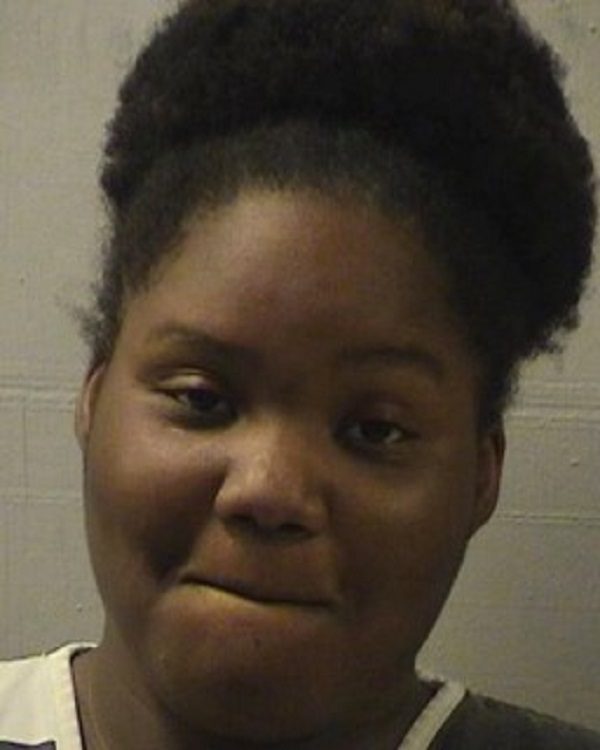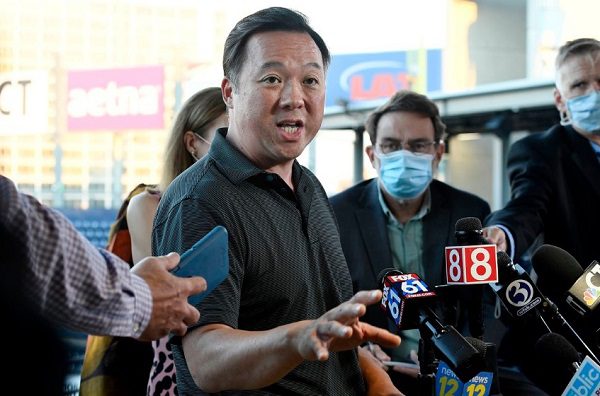Disabled Teacher Assaulted By Black Student In TikTok Challenge
A disabled teacher at a Louisiana high school was hospitalized after a female student punched the unsuspecting educator in the face as the incident was filmed and posted online in what cops suspect was part of the slap a teacher tiktok challenge.
Jackson has been arrested and charged with battery of a school teacher – punishable as a felony
Larrianna Jackson, an 18-year-old student at Covington High School, was arrested Wednesday on felony battery of a school teacher after the unprovoked attack that cops say may have been prompted by slap a teacher tiktok challenge — which the platform denies is a trend.

In the video posted to TikTok on Wednesday, the unidentified 64-year-old English teacher at Covington High School is seen sitting at her desk in a near-empty classroom talking to Larianna Jackson, 18, after the dismissal bell rang. About 20 seconds into the video, Jackson suddenly wallops the woman in the face and repeatedly strikes her, sending the teacher sprawling off her chair and onto the ground.
“In the video, you can see the schoolteacher sitting at her desk where she appears to be talking to Larrianna Jackson,” Covington police said in a statement. “After a moment, Jackson punches the teacher, causing the teacher to fall to the ground. As the teacher fell to the ground, Jackson continues to violently close fist-punch the teacher. The video then turns off at this point.”

St. Tammany Schools Superintendent Frank Jabbia told the station he was “devastated” to watch the footage. “For this teacher to be having a conversation with a student and then to be assaulted in this manner was very disturbing,” Jabbia said, adding that all students involved would be disciplined.
The unnamed teacher sought treatment at a hospital after the attack, police said. Responding officers were also provided the video footage that captured the entire incident. It’s unclear if the assaulted teacher will return to the classroom, Jabbia said. She has been released from the hospital, but will be monitored over the next few days, the superintendent said.
Police said the assault could be tied to a viral trend on TikTok, where users on the app “have deemed it to be a challenge” to damage school property and attack teachers while reminding the public that anyone who participates in such incidents will be prosecuted.
“This matter is still under investigation and more arrests will be forthcoming,” Covington police said. However, the incident at Covington High School, located about 45 miles north of New Orleans, was not the first one that has been attributed to the viral craze. Educators in South Carolina confirmed last Friday that an elementary student had assaulted a teacher by striking her in the back of the head.
A slapping incident was also reported at a school in Springfield, Missouri, and resulted in police involvement. It is unclear if that student faces any criminal charges. Meanwhile, leaders from school districts across the United States say their educators are on ‘high alert.
Legislators, including Connecticut Attorney General William Tong, argue that TikTok needs to meet with lawmakers, educators, and parents and ‘commit to reforms that stop reckless content’. School officials are also urging students not to participate in the trend and asking parents to facilitate discussions with their kids about the dangers of participating in social media challenges.

‘We are calling on parents to talk with their children and let them know that threatening and engaging in physical harm is not a joke. Such action is and will be treated as assault. There will be zero tolerance for such behavior,’ Jenni Benson, president of the Nebraska State Education Association, wrote in a press release.
Her claims were echoed by John Spatz, executive director of the Nebraska Association of School Boards. ‘We need parents to talk to their kids and warn them of the serious consequences they face for such stunts, especially slapping a teacher,’ he wrote. ‘Not only are these challenges disturbing, but they are also asking students to participate in criminal or possible life-changing events.’
